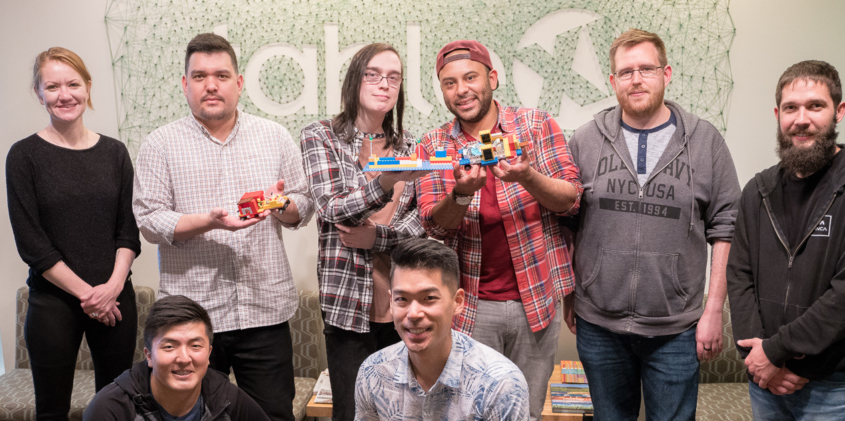Code Platoon Week Three – Objects and Data
Week Three is all about data and industry best practices. Students learn the ins and outs of Object Oriented Programming and why it’s such an effective model for writing code and handling data.
Reading and Writing Data
You can’t get too far into programming without eventually having to deal with data. As students develop their skills, they’ll begin to create larger applications. As these apps grow, they will need to consume and create more and more data. We’ll look at ways to organize and save data to files using popular formats like comma separated values (CSV) and javascript object notation (JSON). The latter is one of the most popular ways of passing data around on the web, and working with each will provide a solid foundation for students when we finally get to storing large amounts of information in databases.
Working With Objects
Once students are comfortable reading and storing data, we’ll teach them how to use Python and Javascript to build something useful with that data. One of the most popular ways programmers represent and handle data in their applications is with a paradigm called Object Oriented Programming. OOP allows programmers to easily model and manipulate data in their applications. It’s at the heart of many web applications, and it will be the foundation on which students will create their own programs moving forward.
Code Style
Great code doesn’t just have to be performative, it also has to be readable to other developers. Large applications usually have many hands poking into many parts of the code base. Even on small teams, messy code can lead to large problems. Things like naming conventions, indentation, and where and when to add comments can all affect how code is read and understood by other programmers. We’ll walk students through best practices so that the code they write will always be easy to understand and live up to industry standards.
We’ll also explore some tools (remember those outside third-party libraries from week two?) which will ensure that by the end of week three, Code Platoon students are writing squeaky-clean code.

